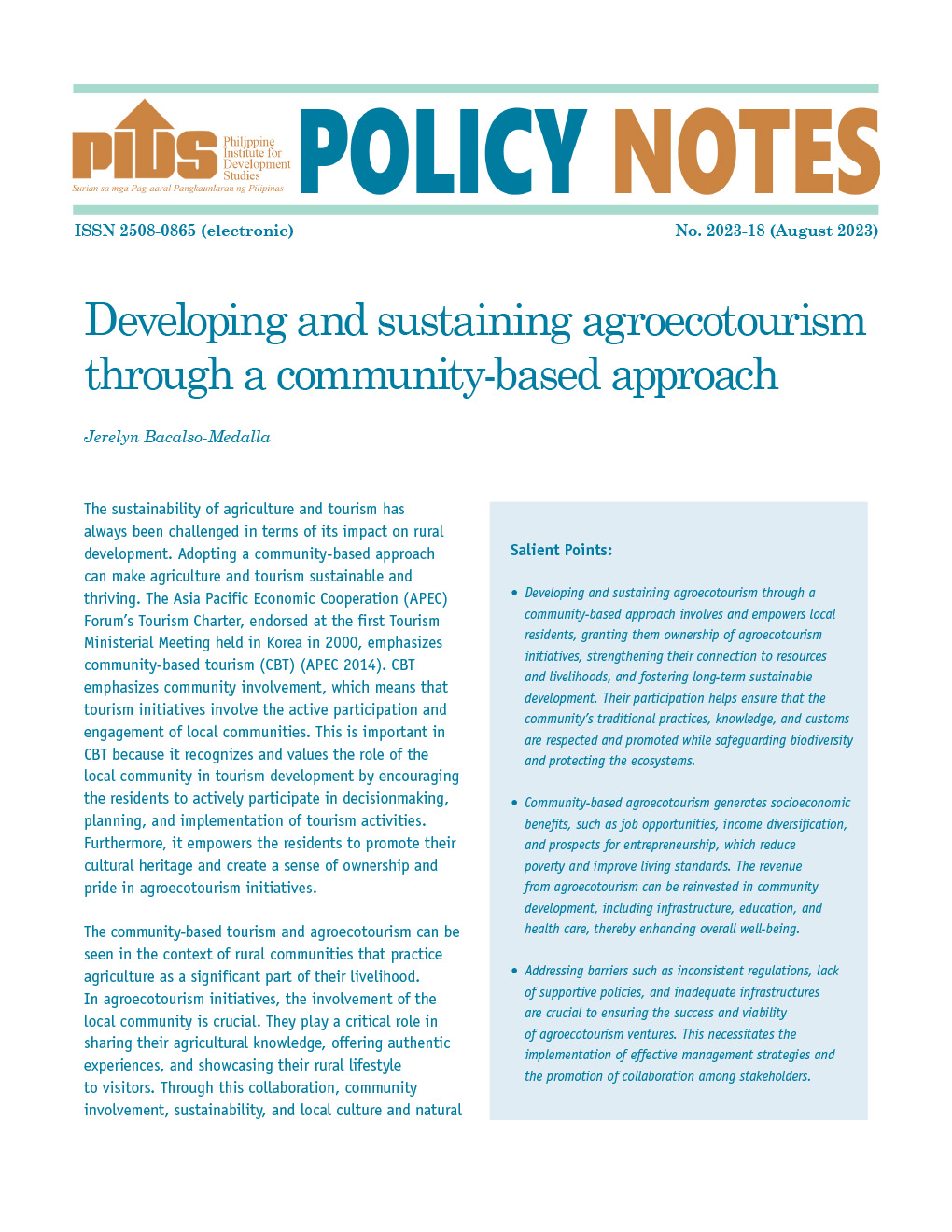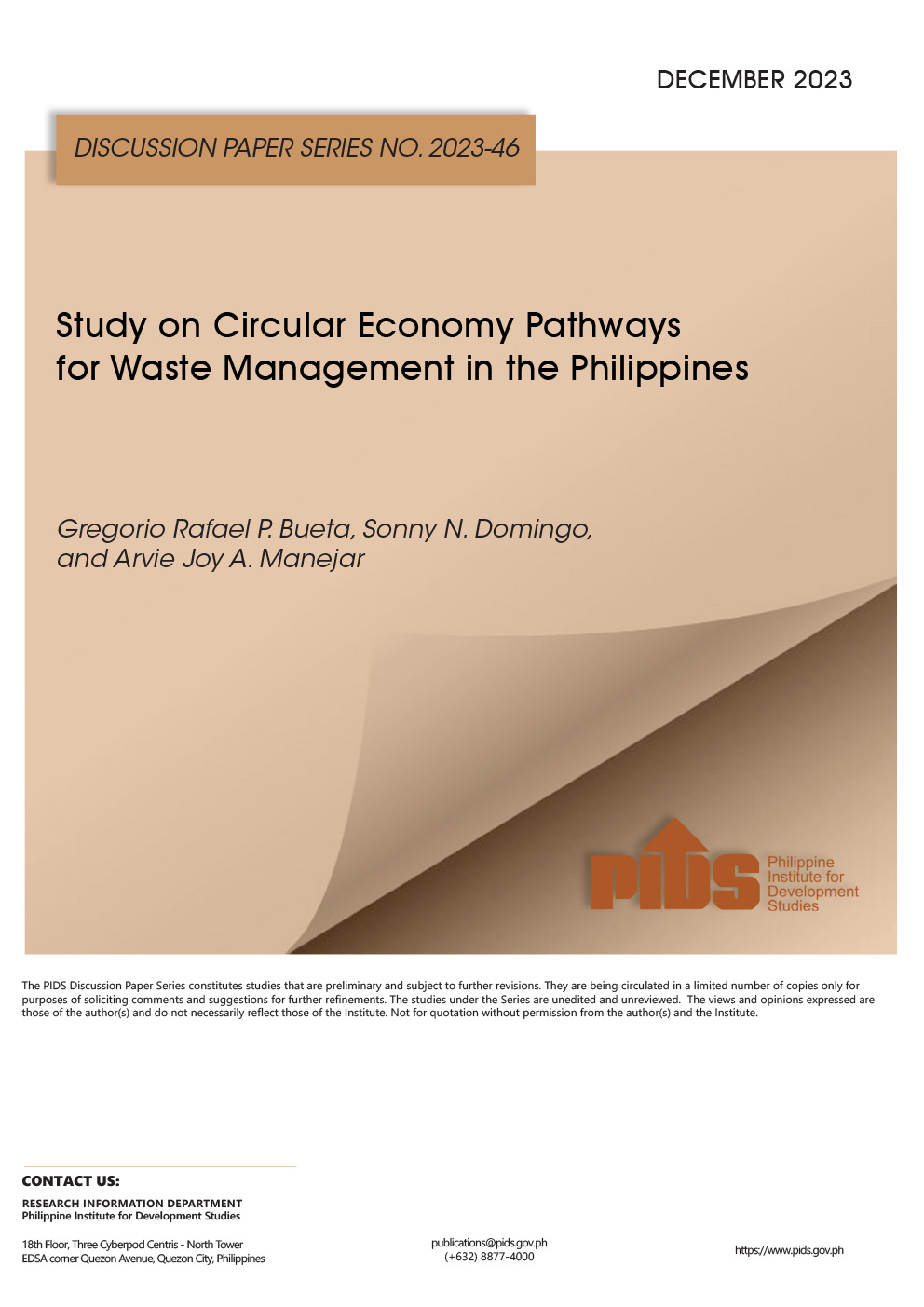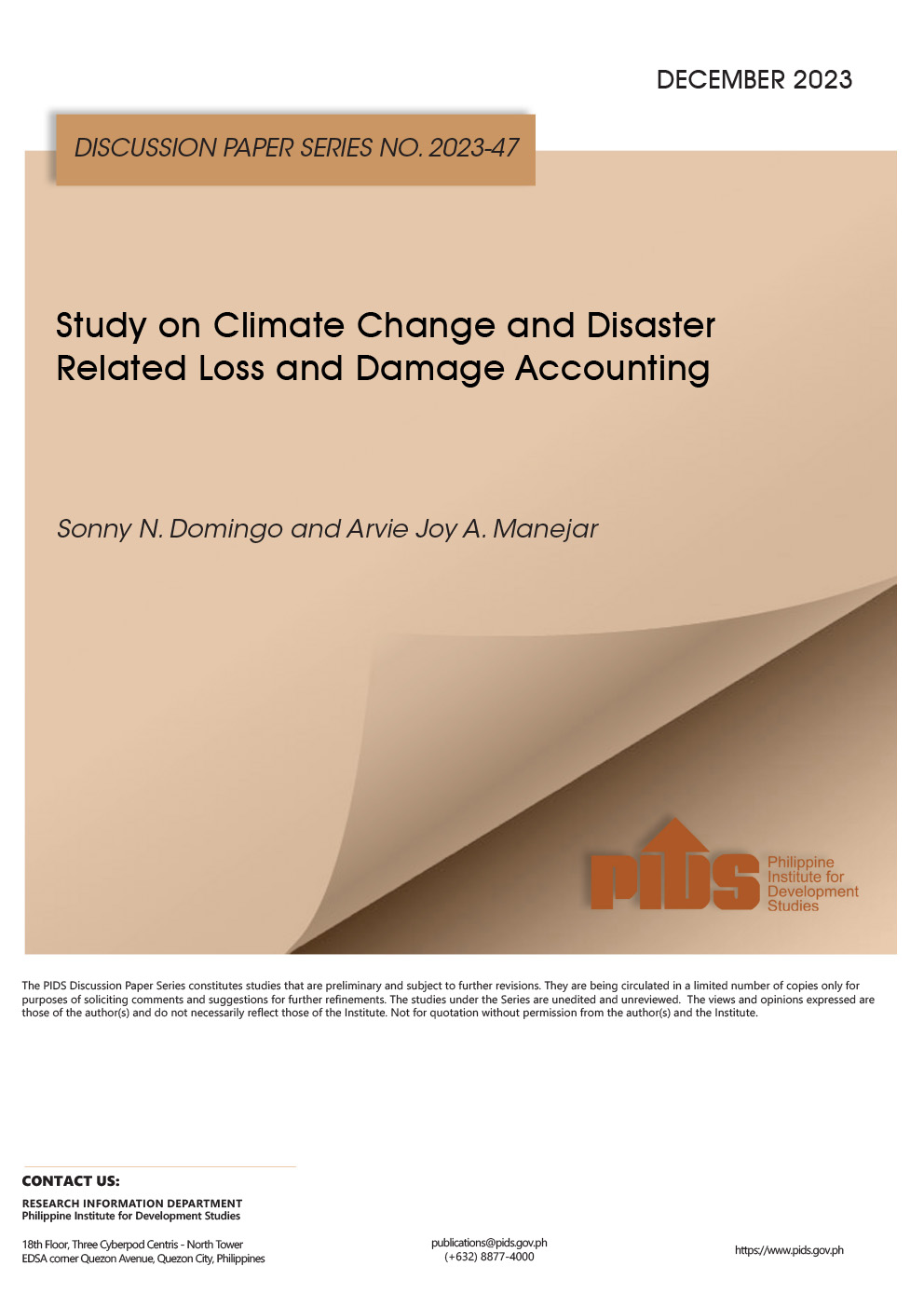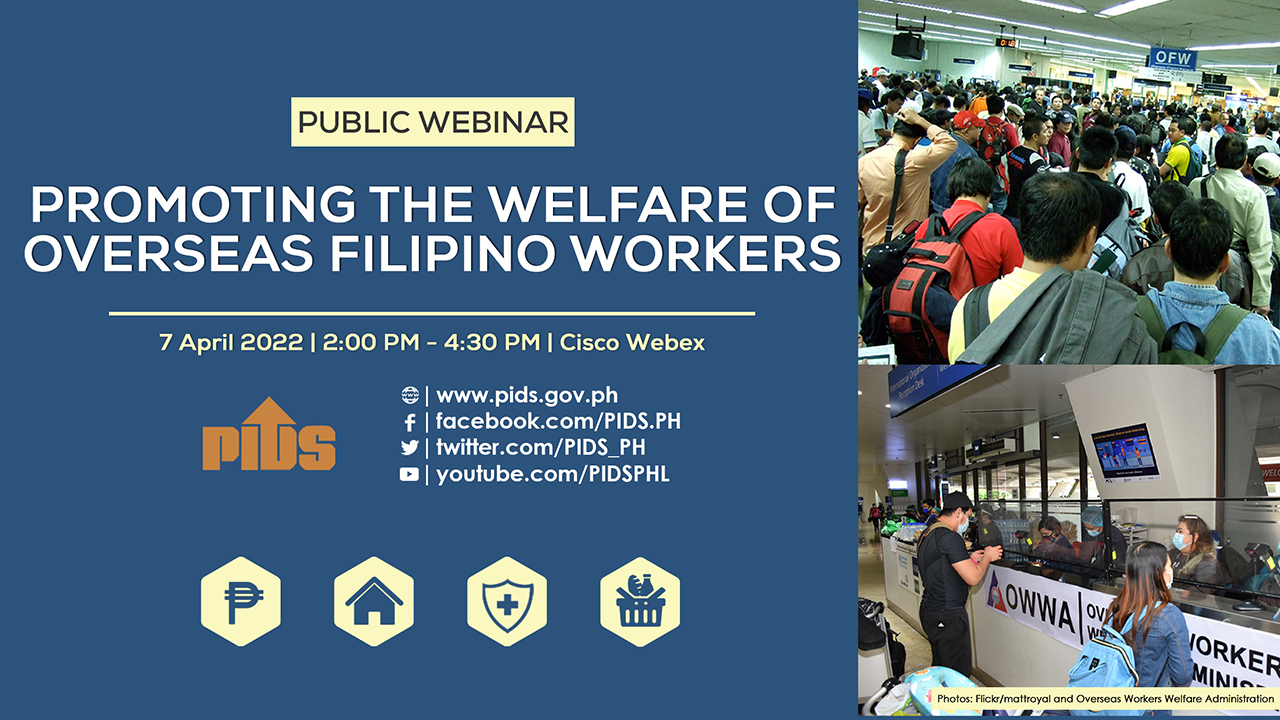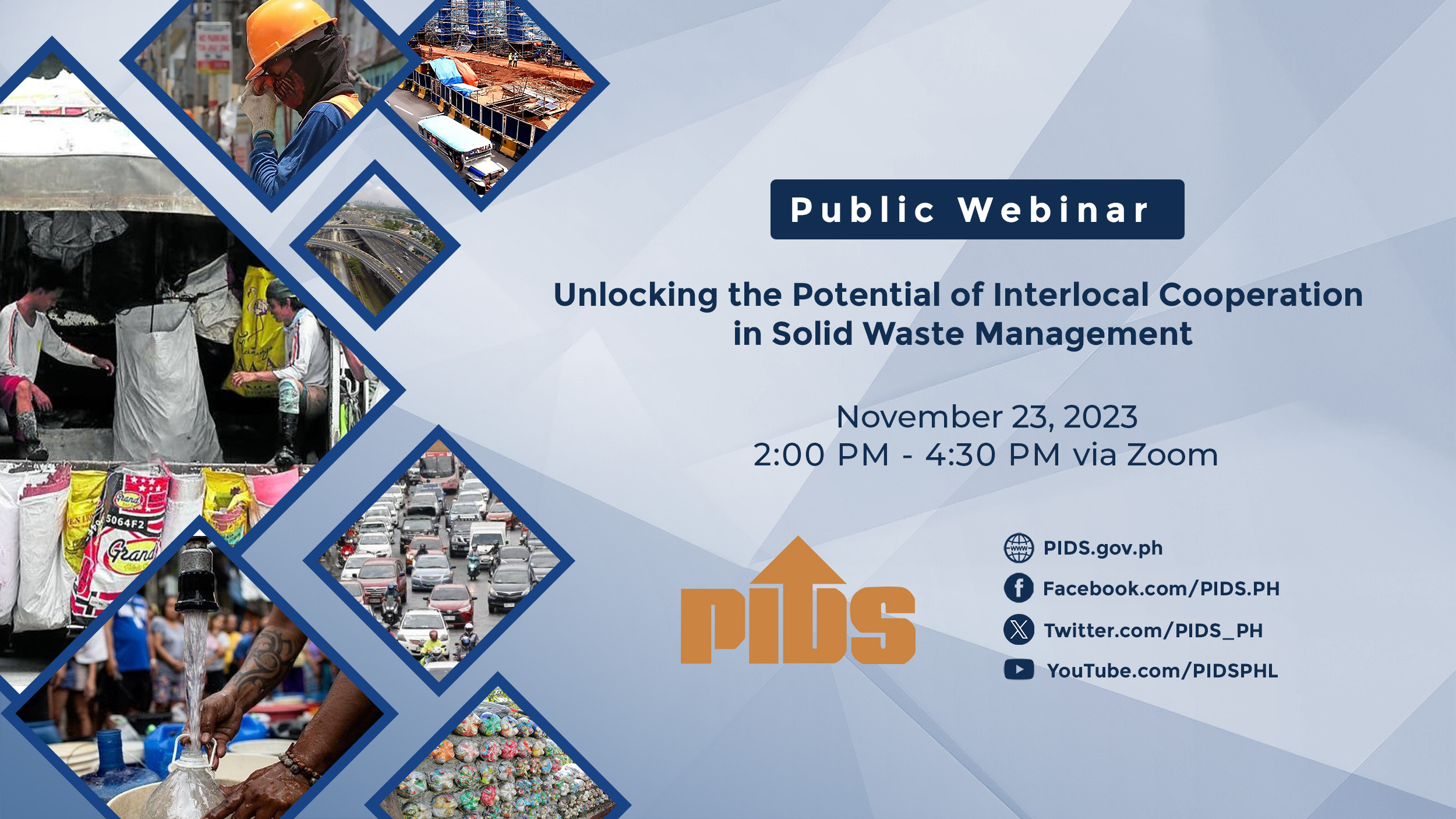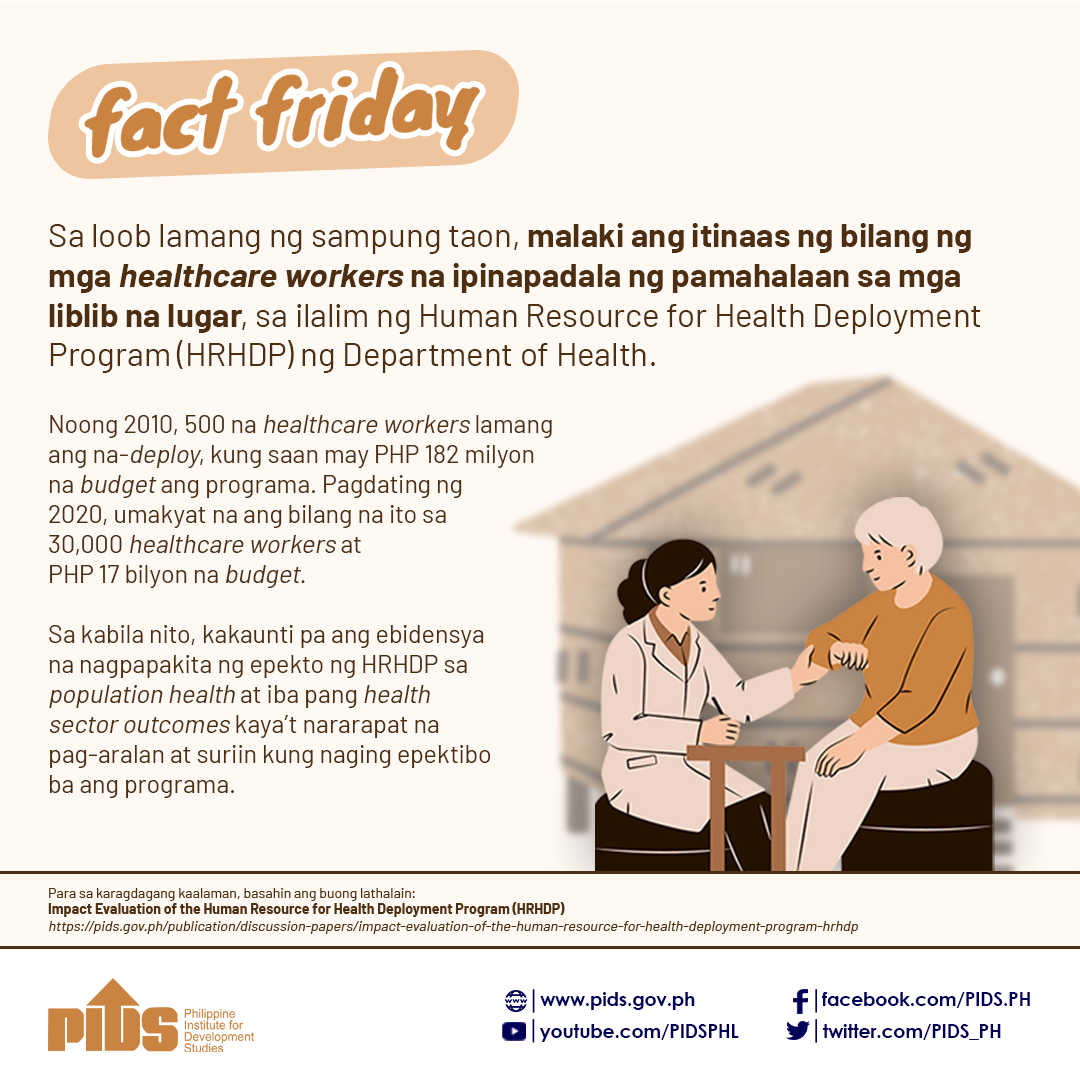INSTITUTIONALIZING the informal sector in waste management in cities and municipalities may lead to better management of solid waste as well as solve some issues related to poverty, a study by the government think-tank Philippine Institute for Development Studies (PIDS) revealed.
The study by PIDS Senior Research Fellow Sonny N. Domingo and Research Analyst II Arvie Joy A. Manejar noted that junk shops serving as pseudo-Material Recovery Facilities (MRFs) and scavengers were instrumental in bridging the gaps in recyclables and market exchange.
“Institutionalization of the informal economy has to be looked at as well and that strengthening of horizontal and vertical linkages, from collection hubs to linking with markets and industries,” Domingo said in a presentation of the findings of their study titled “An Analysis of Regulatory Policies on Solid Waste Management in the Philippines: Ways Forward.”
“Formalization of informal workers and settlers, looking at their welfare and then the eventual industry linkage for income generation activities (is needed), making the scheme sustainable,” he added.
Based on data obtained by the researchers from organizations such as the Japan International Cooperation Agency (JICA), disposal site scavengers collected an average of 14.36 kilograms per capita per day of paper waste in Metro Manila, Metro Cebu, and Southern Mindanao.
These informal workers also collected 1.45 kilograms per capita per day of aluminum waste nationwide; 12.28 kilograms per capita per day of other metal wastes; 16.6 kilograms per capita per day of plastic waste; and 19.97 kilograms per capita per day of glass waste.
For street collectors, they collected an average of 3.11 kilograms per capita per day of paper waste; 0.5 kilograms per capita per day of aluminum waste; 7.06 kilograms per capita per day of other metals; 3.02 kilograms per capita per day of plastic wastes; and 2.69 kilograms per capita per day of glass waste.
“Across all materials, it was evident that disposal site scavengers perform much of the collection tasks, albeit informally in most cases. Protecting informal workers’ welfare may not only benefit the community, but it could also contribute to the operational viability of local SWM [solid waste management] programs,” the authors said in the study.
As cities and municipalities move toward the formalization of its local waste management operations, the researchers said scavengers and dumpsite dwellers should not be displaced.
Efforts to provide them with alternative housing and livelihood opportunities must be explored and that “the bounty of youth and manpower must be capitalized on to make waste management operations sustainable.”
Meanwhile, the researchers also found that the Ecological Solid Waste Management Act (2001) or Republic Act 9003 was not fully cascaded given the weak regulatory governance and the current limited sub-national resource and infrastructure.
They added that communities and barangays must be empowered to encourage better solid waste management practices by facilitating behavioral change locally when it comes to garbage disposal.
Further, the researchers recommended a need to revisit local government reliance on policy grounding since the autonomy granted to LGUs was “not working.”
The government also needs to invest in infrastructure such as on “state-of-the-art” SWM facilities and sanitary landfill post-closure maintenance and operation, which should eventually be included in the Build, Build, Build.
Efforts to address medical waste are also paramount. The researchers noted that due to the surge in Covid-19 cases, the country may have also experienced a spike in hazardous wastes.
The researchers found that the San Lazaro Hospital in Manila City released between March and June approximately 29,473 kilograms of healthcare waste.
These included but are not limited to “personal protective equipment, dressings, swabs, blood bags, urine bags, sputum cups, syringes, test tubes, and histopathological waste.”
Domingo and Manejar said these figures were expected to increase in the succeeding months given the continued increase in the number of Covid-19 cases.
Assimilate informal workers to solve waste issues–PIDS

